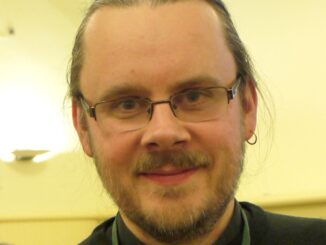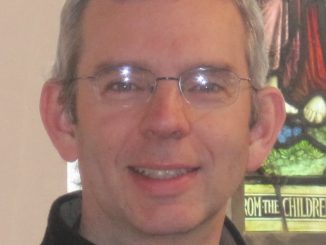 What is normal?
What is normal?
THESE ARE risky days to be making predictions. But writing in January for the March edition of Caversham Bridge, there is a feeling we may finally be getting ‘back to normal’ – although I realise this is not the first time we have thought so in this pandemic. The idea of a summer with the pandemic more or less behind us is glorious, so we are thankful for the vaccine!
But it could be said the joy we will feel is akin to how we feel when we recover from an illness. A wonderful relief certainly, but are we actually no better off than if we had never been ill in the first place? Are we no further on than if the virus had never emerged? We speak of getting back to normal, but there’s been a lot of water under the bridge since 2019. People have died, been bereaved, or suffered terribly from isolation. Equally, there has been great heroism, and countless acts of kindness. But even for those who have not been much affected, is it right to think that we are getting ‘back on track’, back to where we would have been had there been no virus?
The reality, of course, is there is no going back. When we think like that, it is probably only because in 2019 we didn’t know dealing with a pandemic was going to be our future for the next two years. But such ups and downs and twists and turns are normal. If we think of the pandemic as a blip, an interruption, is it because we have an idea of progress which gives the illusion of life becoming ever smoother, healthier, and more affluent? Is this not, in fact, a myth?
In some ways this is true. The vaccine was developed faster than ever before. That’s progress. There are fewer people in the world living in poverty than there were. But overall are people more enlightened or free or happy? Human life is, and always will be, a struggle. That is what is normal. The Bible was written in times when life was a struggle. We should be aware of context when looking to faith for answers, but Christianity takes for granted that life is hard.
I wonder whether the widespread belief in human progress is partly why Christianity is less popular than it was. People unconsciously think the answers to life’s problems are found in science, technology and economic growth, and certainly many improvements are found there. But ultimately, no amount of progress will change the human condition of brokenness (or ‘sinfulness’), or the Second Law of Thermodynamics (which states that disorder always increases; disorder is what leads to disease and death, since a healthy body is a highly ordered structure).
If we could accept this is the human lot, then maybe what we do in church and the message of the Christian faith would resonate more. If we want to be more whole, we need to do what God does, and learn to live with our human frailty.
Rev Nigel Jones, Vicar St Andrew’s Church, Albert Road
Dr Alison Johnston, Caversham Bridge, 2017 (Editors Login)


